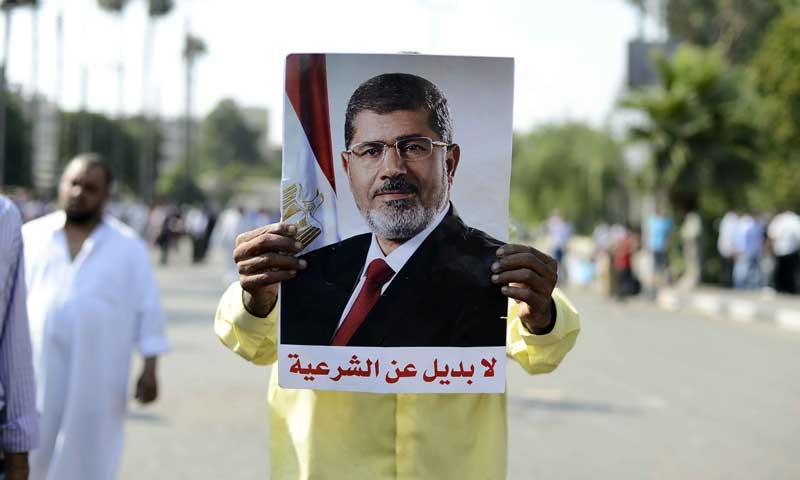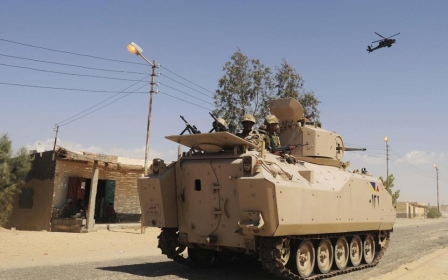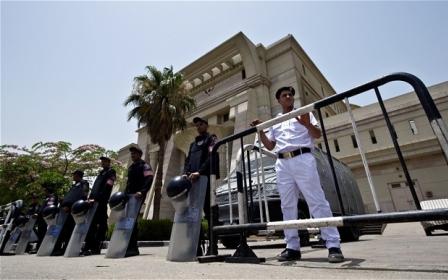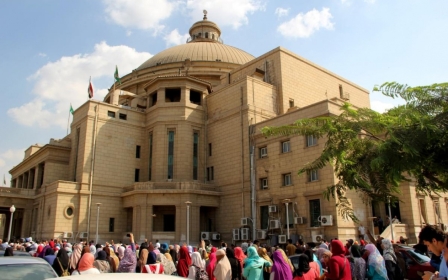Leaked Morsi letter: 'I turned down attempts to negotiate'

Egypt’s deposed former President, Mohammed Morsi, has made public a letter addressed to his supporters and the country’s “revolutionaries” to mark the festival of the Islamic New Year on Friday.
In the letter, addressed to the “great people of Egypt”, Morsi expressed his “delight at the continuation of your revolution against the paralysed coup and its leaders”, in a reference to Morsi’s successor as President, Abdel Fattah al-Sisi.
Sisi was formerly head of Egypt’s armed forces, and led Morsi’s ousting in July 2013. A general election held in June 2014 saw Sisi claim a landslide win, attracting 96 percent of the vote.
A day after the election results were announced, Morsi smuggled a letter out of prison encouraging his supporters to continue their “peaceful revolution".
Shared Saturday on Morsi’s official Facebook and Twitter pages, the most recent leaked letter reports that Morsi “reject[s] all the attempts to negotiate at the expense of the revolution".
However, he gave no indication as to what the basis of any such negotiations might have been, or who might have been behind these attempts.
There have been no official statements from Egyptian officials regarding the latest letter.
Morsi has been in prison since 2 July 2013, and faces a raft of charges including his alleged involvement in the deaths of 10 protesters during clashes in December 2012. His trial has been postponed several times, most recently on 23 October.
In his letter, Morsi promises that he will not leave prison “before all my detained sons are freed and all my detained daughters are back in their homes”, in a reference to the thousands of Muslim Brotherhood supporters who remain in prison.
In an indication that Morsi still considers himself the leader of the revolution, he instructs activists, most notably supporters of the banned Muslim Brotherhood of which he is head, that “there should be no recognition of the coup” and “no negotiation at the expense of the blood of the martyrs".
Supporters of the Muslim Brotherhood hold frequent demonstrations against Sisi’s government and the deposition last year of Morsi, whom many still see as the country’s rightful leader.
Most recently, there have been security crackdowns and violent clashes at many of Egypt's main universities, and Morsi said in his letter that he is inspired by "the innovative youth in all revolution squares and universities".
Morsi always signs off his letters as Dr Mohammed Morsi, President of the Arab Republic of Egypt.
In a sign that Egypt's current leaders still perceive the Muslim Brotherhood as having widespread popular support, Sisi's Interior Minister Mohammed Ibrahim said on 22 October that if parliamentary elections were held today, the Muslim Brotherhood and the Salafists would win.
Egyptian authorities have designated the Muslim Brotherhood a terrorist organisation, and blame them for violent attacks and clashes with security forces.
New MEE newsletter: Jerusalem Dispatch
Sign up to get the latest insights and analysis on Israel-Palestine, alongside Turkey Unpacked and other MEE newsletters
Middle East Eye delivers independent and unrivalled coverage and analysis of the Middle East, North Africa and beyond. To learn more about republishing this content and the associated fees, please fill out this form. More about MEE can be found here.




